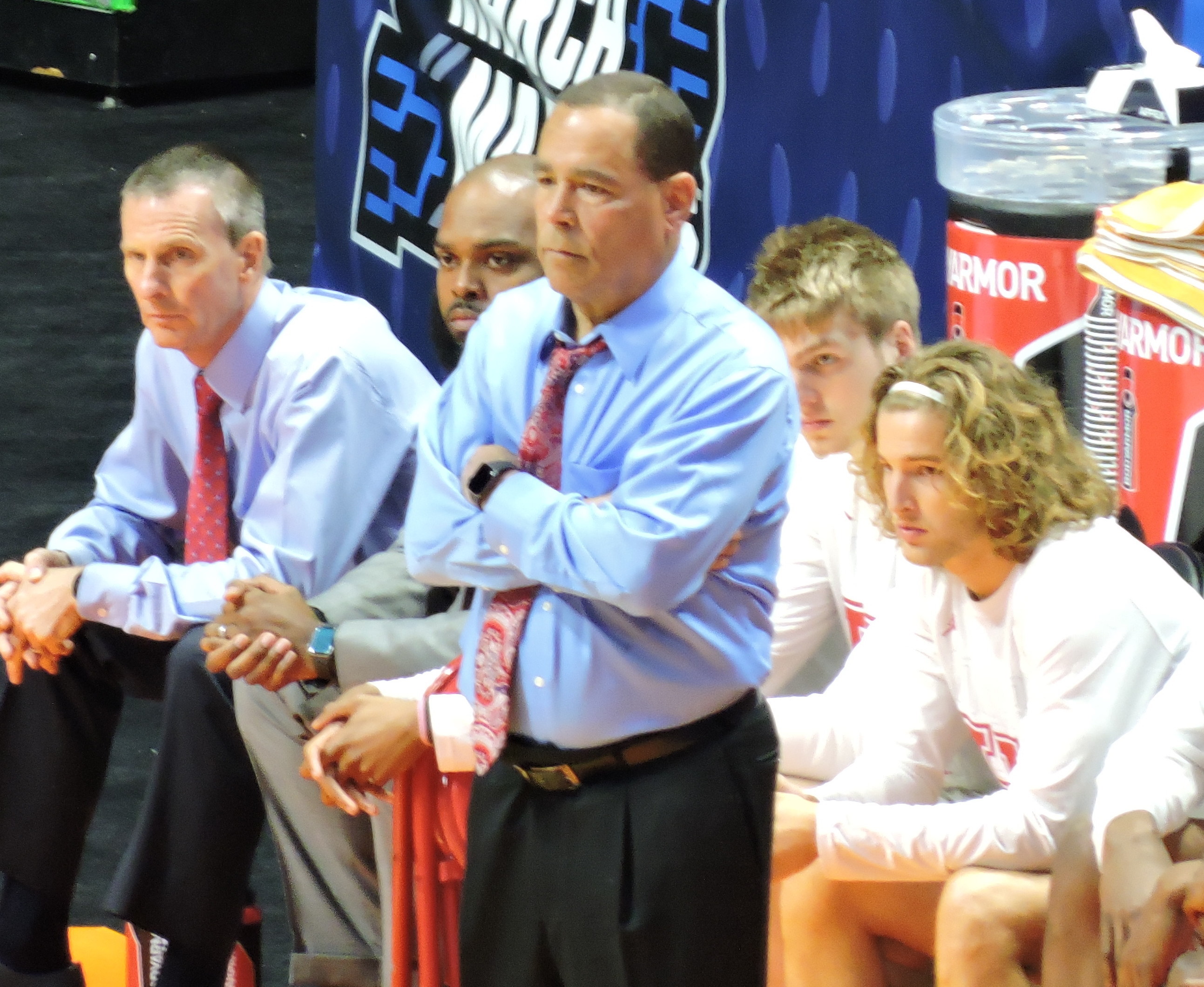
- Details
- By Darren Thompson
HOUSTON, Texas — The University of Houston Men’s Basketball Team is heading to the NCAA Men's Division I Basketball Final Four for the first time in 37 years. While it’s definitely exciting for the Houston Cougars, it's also a milestone for head coach Kelvin Sampson. It’s his second Final Four appearance; his first was 19 years ago while serving as head coach for the University of Oklahoma.
Coach Sampson was born in Laurinberg, N.C. and raised in Pembroke, N.C. — the heart of the Lumbee Tribe of North Carolina. He’s Lumbee through and through, and out of the NCAA's 353 Division I basketball programs, Sampson is the only Native American head coach.
Sampson has been coaching basketball for 40 years, coaching eight years in the NBA and then for various NCAA men’s programs, including Michigan State University, Montana Tech University, Washington State University, University of Oklahoma, Indiana University, and the University of Houston. He is one of only 15 coaches in NCAA history to lead four or more schools to the NCAA tournament and has been named National Coach of the Year three times.
Monday’s game marked Coach Sampson’s 1,000th game as a NCAA head coach, when the Houston Cougars defeated the Oregon State Beavers in the Elite Eight in Indianapolis, Ind. to advance to the 2021 Final Four. Not including post-season games, Coach Sampson has a 66.7 percent win record, which stands at 667 wins and 333 losses.
Coach Sampson’s father, John W. "Ned" Sampson, was also a basketball coach at Pembroke High School. Sampson’s father was one of the 500 Lumbees who made national news in 1958 by driving the Ku Klux Klan out of Maxton, N.C. after an attempted rally to decry what the Ku Klux Klan called “race mixing” when a Lumbee woman began dating a white man and a nearby Lumbee family moved into an all-white neighborhood.
The day of the event, Jan. 13, 1958, is celebrated annually by the Lumbee as the Battle of Hayes Pond.
The Lumbee Tribe of North Carolina has been advocating for federal recognition since 1888, according to the tribe. On Nov. 16, 2020, the U.S. House of Representatives passed the Lumbee Tribe of North Carolina Recognition Act. However, the U.S. Senate failed to act on the Act, leaving another effort for federal recognition in limbo.
The Act would have extended federal recognition to the Lumbee Tribe, thereby making its members eligible for the services and benefits provided to members of federally recognized tribes.
As of press time, Coach Sampson was not immediately available for an interview with Native News Online.
More Stories Like This
Native News Weekly (August 25, 2024): D.C. BriefsUS Presidents in Their Own Words Concerning American Indians
Native News Weekly (December 14, 2025): D.C. Briefs
Wounded Knee Massacre Site Protection Bill Passes Congress
Two Murdered on Colville Indian Reservation
Help us defend tribal sovereignty.
At Native News Online, our mission is rooted in telling the stories that strengthen sovereignty and uplift Indigenous voices — not just at year’s end, but every single day.
Because of your generosity last year, we were able to keep our reporters on the ground in tribal communities, at national gatherings and in the halls of Congress — covering the issues that matter most to Indian Country: sovereignty, culture, education, health and economic opportunity.
That support sustained us through a tough year in 2025. Now, as we look to the year ahead, we need your help right now to ensure warrior journalism remains strong — reporting that defends tribal sovereignty, amplifies Native truth, and holds power accountable.
 The stakes couldn't be higher. Your support keeps Native voices heard, Native stories told and Native sovereignty defended.
The stakes couldn't be higher. Your support keeps Native voices heard, Native stories told and Native sovereignty defended.
Stand with Warrior Journalism today.
Levi Rickert (Potawatomi), Editor & Publisher
